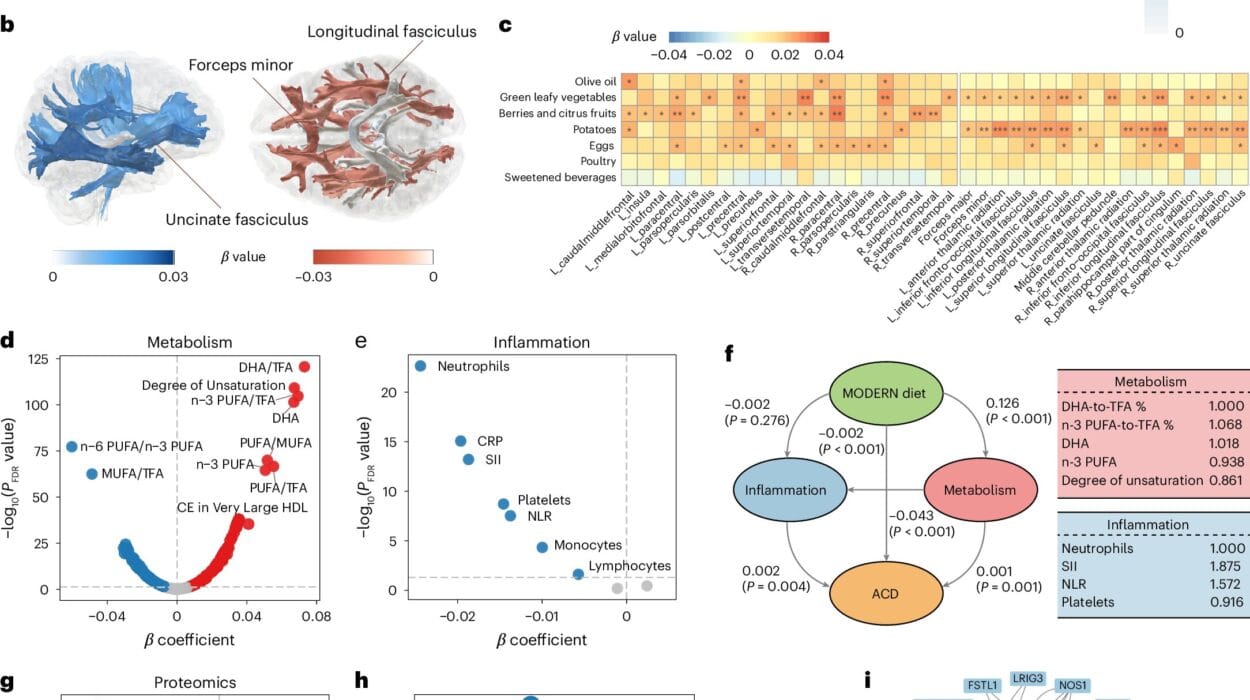The candles flicker on your birthday cake. Friends and family sing. Someone jokes that age is just a number. But deep inside your body, your organs might be telling a very different story—one that could predict not just how long you’ll live, but what diseases might be waiting around the corner.
In a groundbreaking study from Stanford Medicine, scientists have cracked open an astonishing new window into the human body. They’ve discovered that our organs—our brains, hearts, livers, and more—each have their own secret “biological age.” And these hidden ages might be far better than birthdays at revealing who will stay healthy, and who is racing toward disease.
“The brain is the gatekeeper of longevity,” says Tony Wyss-Coray, Ph.D., professor of neurology and senior author of the new study, published in Nature Medicine. “If you’ve got an old brain, you have an increased likelihood of mortality. If you’ve got a young brain, you’re probably going to live longer.”
The Mystery of Biological Age
We’ve all felt it: that silent, unspoken calculation when we meet someone new. How old are they, really? We glance at hairlines, wrinkles, posture, eyes. We guess. But while outward signs offer clues, they’re only skin-deep.
Beneath the surface, your organs could be aging at wildly different speeds. Your chronological age—the number of times you’ve orbited the sun—might say you’re 50. But your kidneys could be as spry as a 35-year-old’s, while your heart might be trudging along like that of someone in their seventies.
This discrepancy is more than trivia. It could be life-or-death information.
“Today, you go to the doctor because something aches, and they take a look to see what’s broken,” Wyss-Coray says. “We’re trying to shift from sick care to health care—and intervene before people get organ-specific disease.”
Decoding the Hidden Ages in Blood
To uncover these hidden ages, Wyss-Coray and his team turned to an enormous treasure trove of data: the UK Biobank. This ongoing project has gathered health records, blood samples, and genetic information from nearly 600,000 people in the UK.
The researchers focused on 44,498 volunteers aged 40 to 70. Using a powerful laboratory technique, they measured nearly 3,000 different proteins in each person’s blood. Many of these proteins can be traced to specific organs. The idea is simple but revolutionary: organs release proteins into the bloodstream as they function—and as they falter.
These blood-borne proteins form unique “signatures” for organs like the brain, heart, kidneys, lungs, and more. By analyzing these protein fingerprints, the researchers built an algorithm to estimate the biological age of 11 major organ systems.
Imagine your blood as a language—and scientists just learned how to read its secret messages.
A Tale of Eleven Organs
The team’s analysis revealed a startling truth. More than one-third of the people studied had at least one organ aging significantly faster—or slower—than the rest of their body. One in four had multiple organs either speeding toward decline or enjoying prolonged youth.
Even among people the same age, the gap between youthful and aged organs could be dramatic.
For example, the brains of some 6-7% of people in the study were “extremely aged,” meaning they looked older than the brains of their peers by more than 1.5 standard deviations. A similar percentage boasted “extremely youthful” brains.
The biological age of these organs wasn’t just an abstract curiosity. It had teeth.
An aged heart predicted a higher risk of heart failure. A prematurely old lung forecast chronic obstructive pulmonary disease (COPD). And an ancient brain foretold a terrifying specter: Alzheimer’s disease.
People whose brains appeared biologically older were 12 times more likely to be diagnosed with Alzheimer’s over the next decade compared to those whose brains looked youthful for their age.
But the news isn’t all grim. Youthful organs seemed to offer powerful shields against disease. A person with a biologically young brain, for instance, had only about one-fourth the risk of developing Alzheimer’s compared to someone whose brain was aging normally.
The Brain: Master Timekeeper of the Body
Among all the body’s organs, the brain emerged as the single most potent predictor of life and death.
Having an extremely aged brain increased a person’s chance of dying over a 15-year period by a staggering 182%. Meanwhile, an extremely youthful brain cut that risk by 40%.
“The brain is connected to everything,” Wyss-Coray explains. “It’s coordinating your immune system, your hormones, your behavior. If your brain is aging faster than the rest of you, it pulls your entire body into decline.”
Seeing the Future—and Changing It
What if we could know these secrets in advance? What if we could act on them before disease strikes?
Wyss-Coray and his colleagues believe that’s the future of medicine. They envision a world where doctors routinely check the biological age of your organs, much like they measure cholesterol or blood pressure today. Catching early aging in specific organs might allow interventions—drugs, diet, exercise—to slow or even reverse the process before symptoms appear.
“This approach could lead to human experiments testing new longevity interventions for their effects on the biological ages of individual organs in individual people,” Wyss-Coray says.
Imagine clinical trials that not only ask, “Does this treatment help people feel better?” but also, “Does it make your heart five years younger? Your brain ten years younger?”
From Research Lab to Everyday Life
Currently, the technology exists only in research settings. But Wyss-Coray is already laying the groundwork to bring it into doctors’ offices—and perhaps eventually to consumers. He’s co-founded two companies, Teal Omics and Vero Bioscience, which aim to commercialize tests and develop new therapies based on these insights.
He predicts that a streamlined version of the test—perhaps focused on critical organs like the brain, heart, and immune system—could be available to the public within two to three years. As testing becomes more common, costs should drop, making biological age an everyday metric, not just a scientific curiosity.
It’s an alluring prospect. One day, instead of hearing, “You’re in good health for your age,” we might hear, “Your brain is 10 years younger than your birth certificate says—and that’s why you’re still thriving.”
A New Era of Medicine
As birthday candles flicker and glow, we’re learning that the true measure of age lies hidden in our bloodstreams, whispered by proteins from organs we can’t see.
The science is young, but its promise is immense: a world where diseases like Alzheimer’s might be caught—and stopped—before they ever show their face. A future where we measure not just how old we are, but how old we feel—and how long we might live.
Age, it turns out, is more than a number. It’s a secret language written deep in our cells. And we’re finally learning how to read it.
Reference: Plasma proteomics links brain and immune system aging with healthspan and longevity, Nature Medicine (2025). DOI: 10.1038/s41591-025-03798-1






